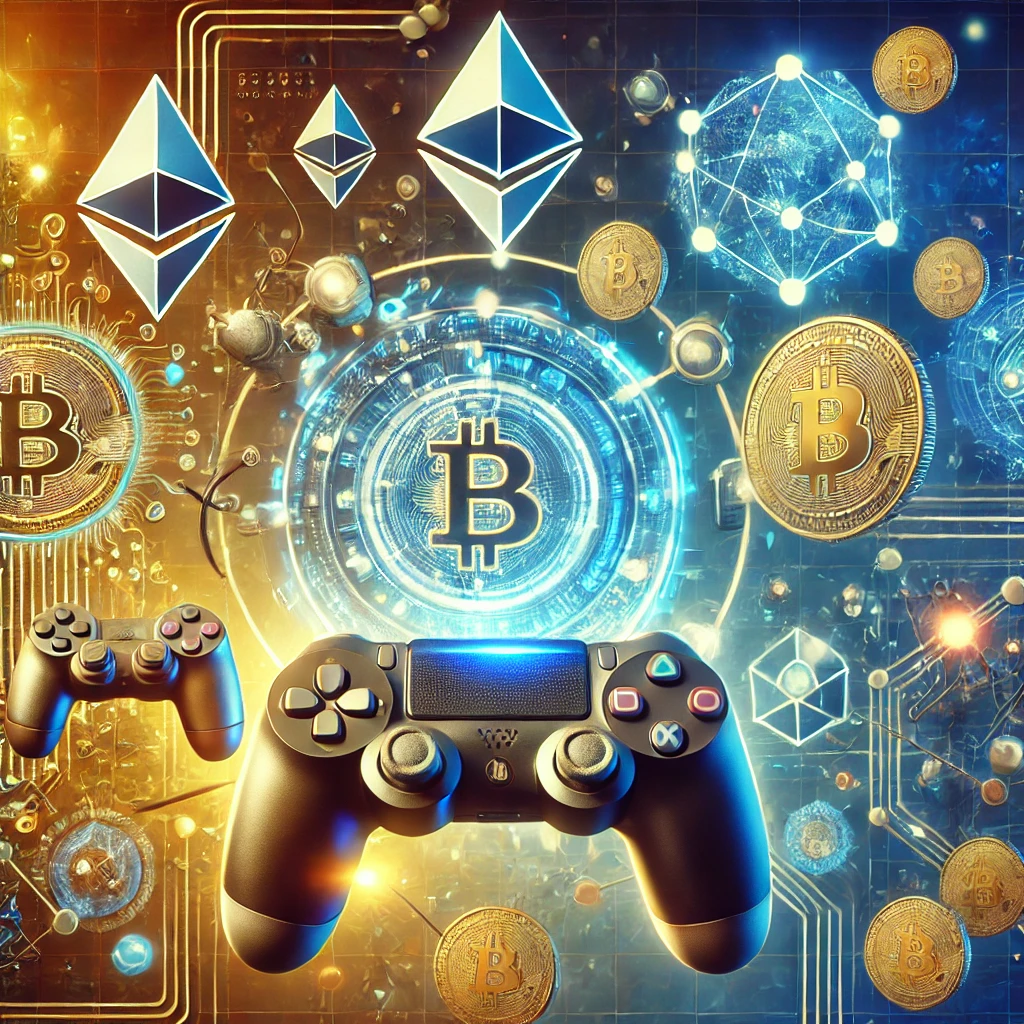Table of Contents
Introduction: The Convergence of Gaming and Blockchain Technology
The gaming industry, long heralded as a hub of technological innovation, is undergoing a profound transformation with the integration of blockchain technology. From the early days of pixelated adventures to the immersive worlds of virtual reality, gaming has always embraced cutting-edge advancements. Blockchain, with its promise of decentralization and transparency, represents the next frontier. As the global gaming market surpasses $200 billion annually, blockchain is poised to reshape how players, developers, and investors interact with games.
Understanding Blockchain in Gaming
At its core, blockchain is a distributed ledger technology that records transactions in a secure, transparent, and immutable way. In gaming, this means players can own their digital assets, developers can create more equitable ecosystems, and the gaming economy becomes more transparent. Technologies like Ethereum, Solana, and Binance Smart Chain are driving blockchain gaming by enabling features such as non-fungible tokens (NFTs) and decentralized finance (DeFi).
Benefits of Blockchain Integration in Gaming
- True Ownership of Digital Assets
Traditional games often limit players’ control over in-game assets. Blockchain changes this by enabling ownership through NFTs, allowing players to buy, sell, and trade items across platforms. This innovation ensures that players’ investments in skins, weapons, or virtual real estate are not confined to one game. - Interoperability Across Games
Imagine using a sword from one game in another or trading characters between different platforms. Blockchain’s interoperability makes this possible, fostering a more unified gaming experience. - Enhanced Security and Fairness
Blockchain-based games eliminate the risk of hacking and fraud by recording all transactions on an immutable ledger. This transparency ensures fair play and reduces cheating, enhancing trust within the gaming community. - Economic Opportunities for Players and Developers
The rise of play-to-earn (P2E) models allows players to earn real-world income through gameplay. Developers benefit from blockchain by accessing new revenue streams via tokenized assets and decentralized marketplaces.
Real-World Applications: Case Studies of Blockchain Games
Several blockchain-based games have already demonstrated the technology’s potential:
- Axie Infinity: A P2E game where players earn cryptocurrency by battling virtual creatures. Axie Infinity generated over $1 billion in revenue in 2022, proving the viability of blockchain gaming.
- The Sandbox and Decentraland: These metaverse platforms allow players to buy, sell, and develop virtual land and assets. They exemplify the merging of gaming, blockchain, and the metaverse.
These success stories highlight blockchain’s ability to empower players and developers alike.
Challenges Facing Blockchain Gaming
- Scalability and Transaction Speed
Blockchain networks often face congestion, leading to slow transaction speeds and high fees. This can deter players accustomed to seamless gaming experiences. - Regulatory Concerns
Governments worldwide are still formulating regulations for cryptocurrencies and blockchain gaming, creating uncertainty for developers and investors. - User Adoption Barriers
Many players find blockchain gaming complex, especially when dealing with wallets, tokens, and decentralized exchanges. Simplifying these processes is critical for widespread adoption. - Energy Consumption
Early blockchain protocols like Ethereum have faced criticism for their high energy usage. However, newer eco-friendly protocols are addressing these concerns.
Future Trends in Blockchain Gaming
- GameFi and DeFi Integration
GameFi combines gaming and decentralized finance, allowing players to earn, stake, and trade tokens seamlessly within games. - Metaverse Integration
As metaverse platforms grow, blockchain will enable cross-platform compatibility, empowering players to use assets across virtual worlds. - Evolving Tokenomics Models
Developers are exploring innovative tokenomics to reward players and sustain gaming ecosystems. - Advancements in Interoperability
New blockchain standards are being developed to enhance compatibility between games and platforms.
Impact on Traditional Gaming Studios and Ecosystems
Blockchain has prompted traditional gaming studios to rethink their business models. Companies like Ubisoft and EA are experimenting with NFTs and blockchain integration. This shift highlights the industry’s recognition of blockchain’s transformative potential. Collaboration between blockchain startups and established studios is becoming more common, fostering innovation while bridging the gap between traditional and decentralized gaming.
Ethical Considerations and Sustainability
- Addiction in Play-to-Earn Models
While P2E models offer financial opportunities, they may encourage excessive gaming. Developers must prioritize player well-being. - Energy Efficiency
Blockchain protocols like Ethereum 2.0 and Solana have significantly reduced energy consumption, making blockchain gaming more sustainable. - Fairness and Accessibility
Ensuring equal opportunities for players worldwide is essential for creating inclusive gaming ecosystems.
The Next Level of Gaming
Blockchain is revolutionizing the gaming industry by fostering true ownership, enabling interoperability, and creating new economic opportunities. While challenges remain, the technology’s potential to redefine gaming experiences is undeniable. As the industry evolves, blockchain will likely become an integral part of gaming’s future, benefiting players, developers, and investors alike.














